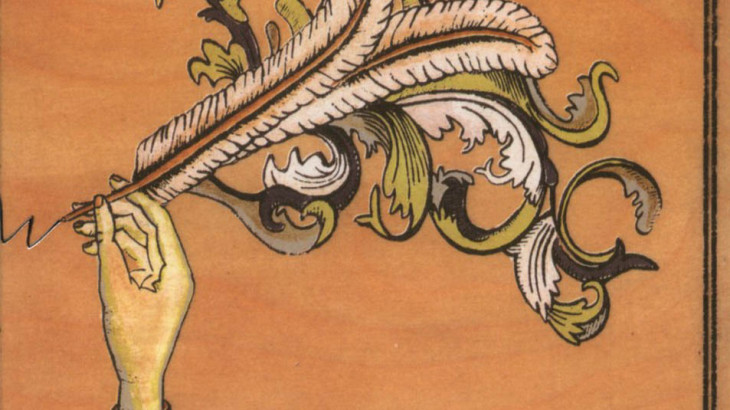‘Death is real.’
These words, spoken by Win Butler himself, reflect the essence of Arcade Fire’s revered debut album. Death is something that Butler and his songwriting partner, wife Régine Chassagne, know a bit about; prior to Funeral, the pair faced multiple deaths in their families. As a consequence, themes of loss and fragility, but also hope, characterise the album. Funeral is intensely emotional, yet uplifting in its catharsis. Much is left unsaid, but the passion and pain conveyed in Butler’s trembling tones, the fierce, unbridled guitar sections that feature intermittently and poignantly, and the sorrowful strings that tie them, say it all.
It took me far too long to find, and appreciate, Arcade Fire. I remember hearing tracks from The Suburbs (principally the title track) on the radio in 2010 and, despite having never heard of the band before, I could tell that it wasn’t Arcade Fire’s first record. There was something so steady, purposeful and resolute about Win Butler’s vocals. Everything was happening for a reason. Arcade Fire were hitting their stride in a big way, and I was pulled along in the slipstream. So were many others; The Suburbs was a surprise winner of the Grammy for Album of the Year in 2010. Nevertheless, it took three more years, and the superb Reflektor record, for me to investigate what started it all for the once-ramshackle Montreal outfit.
Funeral has little of The Suburbs’ composure and even less of Reflektor’s sheen. It’s the most poorly produced of Arcade Fire’s albums, but that hardly detracts from the profound narratives and superb songwriting the album comprises. Along with the offerings of bands like Bloc Party and Franz Ferdinand, Arcade Fire’s Funeral heralded the transformation of indie rock into a genre that was both musically and emotionally complex.
A funeral is as much about celebrating the life of the deceased as it is about mourning their death. It’s fitting, then, that the gloom in which Arcade Fire revel on Funeral is counterbalanced by moments of sincere hope and euphoria. On Neighborhood #1(Tunnels), Butler sings of escapism through the metaphor of a desperate teenage romance. Across town, things are worse; Neighborhood #2 (Laika) touches on domestic violence, while drawing parallels between an alienated, disaffected young man and the doomed dog Laika, sent into space by the Soviets with no chance or intention of her returning alive. Wheezing accordion adds an air of intrigue to the pounding drums and thrashing guitar.
Une Année Sans Lumière is a beautiful, lullaby-like (until its robust final stanza) reflection on the inevitability of death and how people ignore its presence, much like a horse with blinkers (‘un cheval qui porte des œillères’). It shares thematic similarities with Neighborhood #3 (Power Out), but the latter is a surging, crashing wave of emotion, with ragged guitar accompanying Butler and Chassagne’s strained, urgent harmonies. The majestic, wordless chorus of Wake Up is the album’s finest moment. Like so many of Arcade Fire’s songs, the meaning is open to conjecture, but, in the context of the songs around it, I favour the explanation that it’s about overcoming trauma and moving forward with life.
Beneath its sombre façade, you can’t help but feel a sense of hope emanating from the music. Lyrically, Haïti is among the album’s darkest songs, but there’s an undeniable calm and buoyancy about the strumming of an acoustic guitar. Rebellion (Lies) possesses an infectious, strutting bassline and a remarkably upbeat call and response section (‘Every time you close your eyes / Lies!’), which in itself may be a comment on society’s mindless compliance with culture and conventions. In many instances, Funeral is more about life – specifically challenging the norm and making the most of your finite time on Earth – than it is about death.
Funeral is not an easy ride. Overwhelmingly, it’s a dark and haunting take on the broader suffering of humanity – whether that be heartbreak (Crown of Love) or despair caused by the uncontrollable passage of time (Neighborhood #4 (7 Kettles)). I love it for its sincerity and its passion – characteristics that Arcade Fire have maintained and honed throughout their career. I only wish I’d heard their music sooner.

